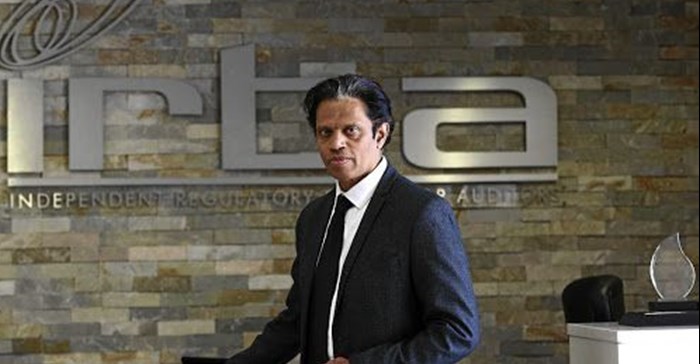Trending
Elections 2024
Jobs
- Accounting Clerk Knysna
- Senior Bookkeeper Knysna
- Auditing Manager Cape Town
- Senior Auditor Cape Town
- Accountant Johannesburg
- Senior Professional Officer Cape Town
- Accountant Knysna
- Payroll Accountant George
- Accountant Cape Town
- SAIPA Trainee Accountants Cape Town
17% of JSE-listed companies have rotated auditors ahead of MAFR

In 2018, 35 companies changed their auditors in early compliance, up from 18 in 2017. This is a 94% increase year on year. In the first three months of 2019, nine companies have announced a change of audit firm.
Fresh pair of eyes
“This is extremely encouraging as at this pace, we can expect that by the end of this year over 120 companies or a third of main board entities will have complied and have ‘a fresh pair of eyes scrutinising their financial statements’. And we can anticipate that by 2021 most listed companies would have complied. The number of early adopters is encouraging, but we nevertheless appreciate that in some cases companies have other audit firms doing non-audit work for them, which results in a conflict of interest and temporarily prevents the easy rotation of the audit from one to another.
“This was why the IRBA provided for a six-year lead time, to allow companies to review the non-audit services by their various audit firms and ensure that the auditors who will take over the audit in the future can already begin to comply with the requisite cooling off period. As the Companies Act stands currently, the auditor cooling off provision is five years. In the amendment consultation process it has been recommended that this be reduced to two years," says Bernard Agulhas, CEO of IRBA.
It is therefore essential that companies which know that they will have to change auditors in 2023 have begun to address the cooling off periods for the audit firm which they may wish to engage at that time, keeping in mind that there are close to 2000 audit firms registered with the IRBA.
Transparency reports
“Audit committees are encouraged to keep an open mind when appointing auditors. To assist audit committees, audit firms will be required to publish audit firm transparency reports from 2020. The current transparency reporting process is voluntary and the IRBA will work with audit firms and audit committees to review the content and usefulness of the reports for committees. To assist committees in comparing audit quality during a selection process, the IRBA has also begun a first phase process to test a set of Audit Quality Indicators (AQIs) with a number of JSE-listed accredited audit firms.
“As we also appreciate that some of the next-tier firms may not have immediate capacity and skills to accept complex audit engagements, the IRBA will embark on a project to develop guidance which will facilitate a more effective environment in which joint audits can be implemented. This will also contribute towards addressing current concerns around concentration in the audit market," he says.
As the process unfolds, MAFR remains the most cited reason by companies for the appointment of a new audit firm. In 2018, 33% of companies cited MAFR, while in the latest results 38% of the change to audit firm was attributed to MAFR.
Terminations of relationship was the second most cited reason when IRBA reported on progress last March, but this has since been overtaken by putting the audit out to tender – with 24% of companies which reported a change of auditor since 2017 doing so. While these companies did not specify that MAFR was a reason for rotating, at least in some of the cases it is likely that the approaching effective date for mandatory rotation of audit firms may have been a factor in the decision to put the audit out to tender early to have the benefit of as much choice as possible.
UK experience
“If this pace of rotation continues into the second half of the year we could see that as many as 70 audits rotating in this year. The UK experience of audit tendering reflected a similar growth pattern on voluntary tendering ahead of the implementation date for mandatory tendering. This is thought to be the desire to get the auditor of their choice from first mover advantage.”
From the UK experience, there is a significant learning curve for audit committees in this process, as few have experience of running an audit tender process. What the IRBA does caution against is audit committees which select new auditors on price alone without considering audit quality and the necessary competence and experience for the nature of the work. But audit committees have recognised that of crucial importance to audit quality is auditor independence, and by addressing any long association between the auditor and the client, the company would have gone a long way in securing reliable and credible audit opinions,” concludes Agulhas.

















